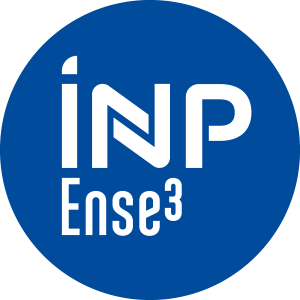
Informations générales
Number of hours
- Lectures 5.0
- Projects -
- Tutorials 5.0
- Internship -
- Laboratory works 50.0
ECTSECTS
5.0
Goal(s)
Understand the syntax and fundamental concepts of the C language. Develop an efficient algorithm while minimizing the use of system resources: CPU, memory, inputs/outputs. Choose a suitable data structure for implementing an algorithm.
Understand the fundamental results related to the most commonly used equations for modeling physical phenomena (ODEs, PDEs). Understand how to perform explicit solutions when possible (linear ODEs, methods of characteristics for the transport equation, separation of variables method for the diffusion or wave equation).
Understand the fundamental concepts of a scientific computing algorithm (consistency, stability, convergence, explicit/implicit numerical scheme). Master the finite difference method to numerically solve ODEs or PDEs with 1D evolution. Implement these algorithms in Python.
Responsible(s)
Antoine VEZIER
Content(s)
C Language:
• Modular Programming and Function Parameters
• Dynamic Memory Reservation
• Strings, File Access
• Arrays and Data Structures
Scientific Computing:
• General Theory of ODEs and PDEs
• Finite Difference Methods for ODEs and PDEs
• Newton's Method
• Jacobi/Gauss-Seidel/SOR Method
No prerequisites
Test
Session normale / First session
Evaluation rattrapable (ER) / ER assessment : devoir surveillé écrit de 2h / 2 hours supervised written exam
Evaluation non rattrapable (EN) / EN assessment : comptes rendus de BE / Lab reports
Si situation 100% distancielle / If distant learning mandatory:
Evaluation rattrapable (ER) / ER assessment : 2h d'examen écrit à distance / 2 hours homework
Evaluation non rattrapable (EN) / EN assessment : comptes rendus de BE / Lab reports
Moyenne de l'UE / Course Unit assessment = ER 50% + EN 50%
Calendar
The course exists in the following branches:
- Curriculum - Year 1 Engineering Bachelor Degree - Semester 6
Additional Information
Course ID : 3EUS2OIN
Course language(s): 
You can find this course among all other courses.
French State controlled diploma conferring a Master's degree



